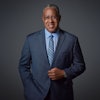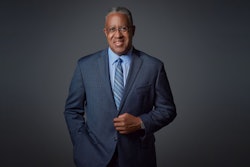Dr. Carole Boyce Davies’ lengthy title at Cornell University — Frank H.T. Rhodes Professor of Humane Letters in the College of Arts and Sciences and professor of Africana studies and literatures in English — denotes an impressive career in academia but doesn’t begin to describe the international recognition she has received and the breadth of her knowledge about the African Diaspora.
“I often tell people I live the Diaspora,” she remarks. “I was born in Trinidad & Tobago, studied in the United States, studied in Nigeria, had a Fulbright in Brazil, did research in the U.S., Brazil, Africa, India, China and the U.K., so I am truly international.”
One of Boyce Davies’ notable accomplishments is serving as editor of the three-volume Encyclopedia of the African Diaspora: Origins, Experiences, and Culture published in 2008. According  Dr. Carole Boyce Davies
Dr. Carole Boyce Davies
The tome along with dozens of other books and more than 100 chapters and journal articles she has written or edited have positioned Boyce Davies as one of the premier authorities on African Diaspora studies.
Boyce Davies sprinkles her conversation with references to Black literary icons such as Toni Morrison and Audre Lorde on the subject of scholar-activists, though she prefers the term “radical intellectuals.” Boyce Davies designed and taught a course on civil rights attorney Michelle Alexander’s groundbreaking 2010 bestseller The New Jim Crow and she touts Henry Louis Gates’ “Black in Latin America” research.
Amid the widespread campus unrest of the early 1970s, Boyce Davies credits Howard University, where she earned her master’s degree in African studies in 1974, with exposing her to a variety of Black historians and literary giants. They included Sterling Brown; C.L.R. James; John O. Killens; Léon Damas, who was her thesis advisor; Arthur P. Davis, who was one of her literature professors; and Howard’s pioneering Black librarian Dorothy Porter Wesley, who developed the world-renowned Moorland-Spingarn Research Center. “They were such brilliant activists and intellectuals — conscious, committed people. I was blessed to have been immersed in so much culture.” She sees a connection to her later research and scholarship.
“The mantra for many of us during my time as a Howard grad student was ‘study and struggle,’’’ she says. “The adult version of this is represented in the Black radical intellectual tradition which sees the Black struggle as global and one to which scholarship uncovers these histories, cultures and practices and shares that knowledge with campus and community.”














